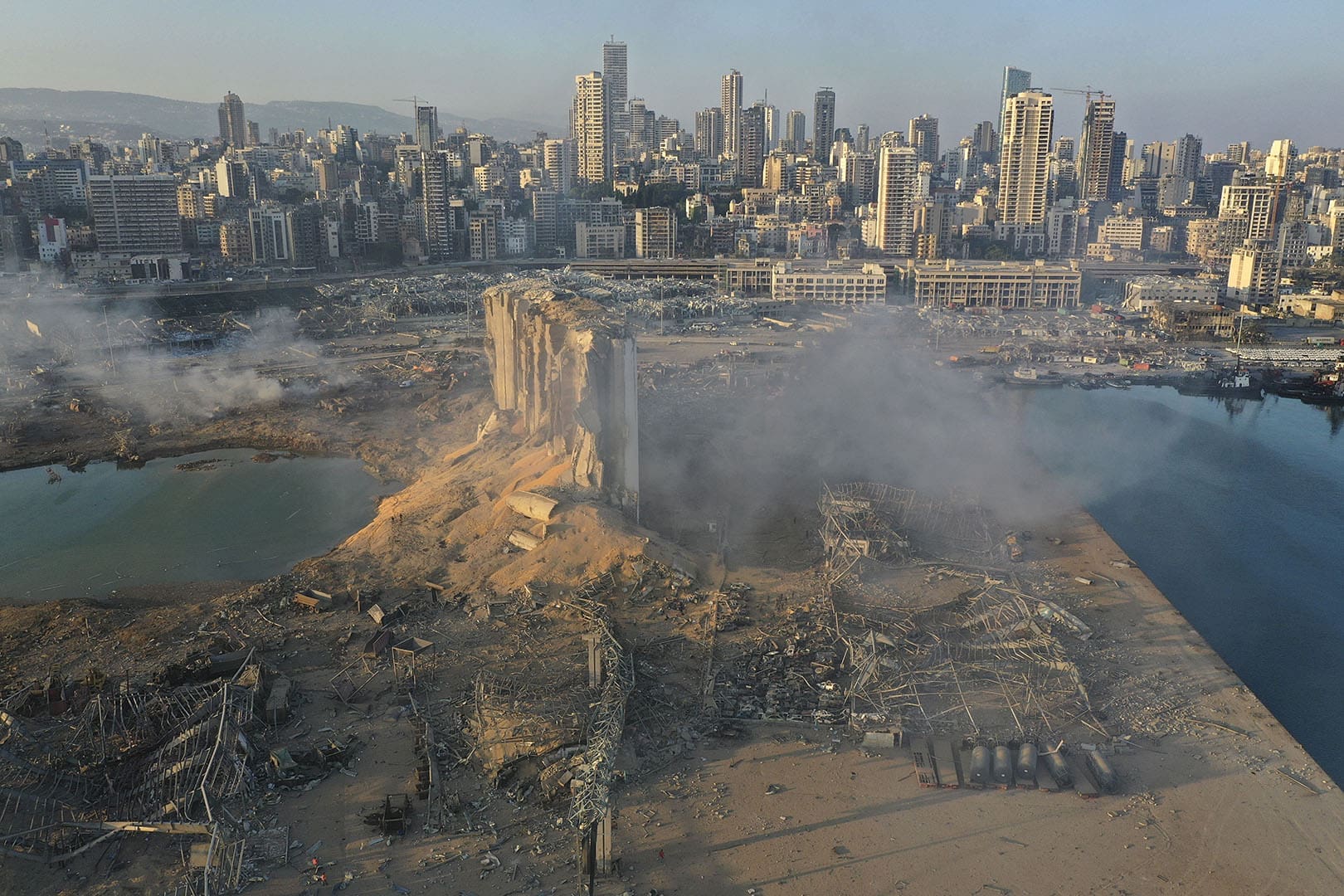Three days after the Beirut explosion that killed over 150 people and injured thousands more, Lebanon’s President Michel Aoun raised the notion that the catastrophe was caused by “external interference.” There is little evidence to suggest it was, only mounting images of the humanitarian disaster now at hand. Many people remain missing, the hospitals are unable to treat those hurt in the blast, and homelessness and food insecurity concerns grow by the hour.
Beirut’s fashion designers are reeling amidst this devastation, with damaged or destroyed shops and studios compounding the challenges brought on by the COVID-19 pandemic, the collapse of Lebanon’s banking system earlier this year, and widespread political unrest. But there is a sense of coming together as a community to help one another and rebuild. The young designer Roni Helou told Vogue’s Sarah Mower: “You can’t just stay at home at a time like this. Everybody is here. Lebanese people are really well known for this. It’s taken our generation back to a war-time we never knew. But honestly, just seeing everyone together has been a boost to the soul.”
Here, other designers and executives share their experiences of the explosion and its aftermath.
“You can’t imagine the damage.”
Speaking from his house in the mountains 20 minutes outside Beirut earlier this week, Zuhair Murad was still in shock. On Tuesday, due to COVID-19-related restrictions, his entire team had left the house’s headquarters near the port of Beirut by 6 pm, minutes before the explosion.
“I cannot express my sadness,” he said. “We saw a fire in the port but we didn’t think it was that serious. We left, and then came the two explosions. Everything vanished in one minute. Thank God we did not lose anyone. But you can’t imagine the damage.”
As followers of his Instagram have seen, with this tragedy Murad lost everything he had in Beirut: his offices were completely destroyed, along with 80% of his archives and all his work for the upcoming ready-to-wear and couture collections. A small portion of his work remains in the safety of his Paris offices.
With his team gathered at his home to plan a way forward, the designer expressed his gratitude for the support of his team and his family, friends and clients. “I want to thank everyone who has given us moral support,” he said. “I have received so many messages and I feel very happy to be surrounded by so many caring people. They believe in me, and we need to continue despite all the tragedy, even if it’s from scratch. I have a message and a mission about beauty, happiness, love and peace.”
Murad said that this week he would be organizing a fund to ask friends and fans – famous and otherwise – to help Lebanon. The designer plans to send out a personal letter worldwide in the next few days. “We are in a bad situation. We want to do something for Lebanon,” he said.
“The country is not able to afford a hit of this magnitude.”
Speaking by phone today from Beirut, Elie Saab Jr, the CEO of his father’s company, said that the house’s teams were safe, although the studio and headquarters, which are located two and a half miles from the blast, had sustained heavy damage. Reconstruction is already underway, he said, and the priority is to see that two or three floors, including the atelier and Mr. Saab’s studio, would be functional after the traditional summer break ends on August 17.
Noting that his father had built his business in a time of war, Mr. Saab spoke of resilience and hope despite economic collapse, civil unrest, COVID-19—and now homelessness and food shortages in the wake of the disaster. “The country was not able to afford taking another hit of this magnitude, it’s really painful for us to see,” he said. Though his and his father’s homes also were demolished, Mr. Saab referred to those losses as “immaterial compared to the damage the country is currently facing.”
Believing and rebuilding are part of the Lebanese DNA, he added. “It’s how we function and how we have lived for the past 30, 40 years. At the end of the day we have a presence and important craftsmanship. We want to do whatever we can to support the Lebanese people and maintain our cause and mission, to be inspired by Lebanon, to see it grow and to keep nurturing the talent and craftsmanship we have there,” he said.
“The Lebanese people live on hope, but this hit was so strong I am afraid it took hope out of their hearts,” Saab said. “Our wish is that by getting the workplace back on track, we will see hope come back to people’s hearts. That is what drives people to rebuild, keep going and find ways to be creative.”
“We have zero support on the ground from any governmental institution.”

